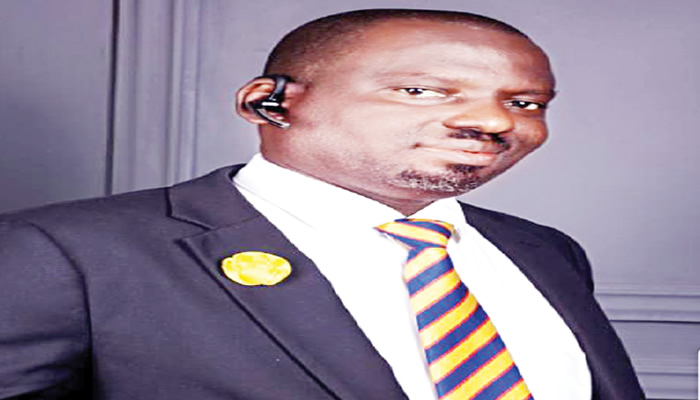
Kunle Olubiyo, Nigeria Consumer Protection Network President and Power Sector Perspectives Coordinator, tells OKECHUKWU NNODIM why the Federal Government cannot deploy six million meters before June, as it projected
The Minister of Power, Abubakar Aliyu, recently said the government would deploy six million meters before June this year, under the second and third phases of the National Mass Metering Programme. How feasible is this?
That is not possible. What made them stop Phase Zero of the programme? Some power distribution companies were signing for meters that were not delivered, as opposed to meters received. They were invoicing for meters that were not supplied.
The Central Bank of Nigeria, which was also providing funding for this, had to go to court concerning the issue. So has the issue raised by the CBN or the issue that led to the abrupt end of Phase Zero of the programme been addressed? So why can’t we just concentrate on the general elections and allow the incoming government to come in and do an analysis of the mass metering programme? Why can’t we just face the transition instead of making projections that we know we will not achieve before handing over on May 29?
It may also interest you to know that this year, the 10-year moratorium on the privatisation of the power sector is supposed to expire. So why are we dabbling in it? What we expected is that there should be a metering fund that should be handled by the Bank of Industry or another organisation so that the indigenous meter manufacturers can access the fund.
If they provide the much-needed bankable instruments to access the fund and they are able to increase their manufacturing capacity, then consumers could just go to them and buy, and just like the POS, the system should be designed in such a way that it would be universal. So that a customer can just go to a meter manufacturer and let them be seamlessly synchronised, such that if you buy it, you take it to the DisCos, and their engineers can programme the meter just like it is done in other climes.
Instead of the government getting involved in what the private sector is supposed to concentrate on, it should channel its energy into other areas of development.
From your submission, are you saying the government should handsoff the mass metering initiative?
Do you know what goes under the table for a meter manufacturer to be slated for patronage under the National Mass Metering Programme? There is the issue of corruption. Do you know the amount a major meter manufacturer will have to part with to get listed? If I’m going to give you one million meters to supply, how much concession are you giving me as a cut? These are some of the things going on, which is why the government should allow the private sector to run it.
Is that not an allegation, or has it been proven?
I am telling you based on information from informed sources. And as I speak with you now, there is no institution of government that is coordinating this National Mass Metering Programme. Is it the prerogative of the CBN?
At the Federal Ministry of Power, there is no department, and there is nobody, no institution, no governance structure, no individual—that is coordinating on behalf of the government. So when we don’t have a governance structure or an institution in CBN, at the Nigerian Electricity Regulatory Commission, or anywhere else, how is it possible to deploy that number of meters? How can you have a programme without a governance structure?
Is the power sector regulator not involved in this?
The NERC is supposed to be directly involved, but all the programmes that it has been doing or rolling out are just copies and pastes. External forces will just prepare a programme and give it to NERC, and the commission will just adopt it hook, line, and sinker.
The Meter Asset Provider scheme was introduced by NERC, but the National Mass Metering Programme is neither here nor there. It is not owned by anybody; you don’t have governance over it; and it is not a programme of NERC.
The commission may not even know anything about the next line of action or whatever, and it does not even have the data. But NERC is supposed to take a leading role in the programme, so enough of these shenanigans.
The irony is that the power sector is so viable. However, the sector’s benefits have been more pro-individual than for end-users and the country’s economy as a whole. So we must draw a line and take back our country.
You talked earlier about the 10-year moratorium on power sector privatisation that ends this year. Please shed more light on it.
When this moratorium expires in October, it will be without litigation because they’ve given the privatised companies 10 years. And so if, in between the lines, we try to shift the goal post, then litigation can arise. If not for the activities of the banks that are now involved in the day-to-day running of some DisCos, there is no way we would have been able to push out this level of impunity in the sector. People can make as much as N15bn in a month and still have a licence for zero remittance.
As consumers, are we not paying our power bills? For the generation companies, don’t they pay for gas? And somebody will collect money on our behalf and not remit it. So this system of privatisation cannot work and has not worked since the sector was privatised 10 years ago.
If you are kicking against the privatisation of the sector, what will you say about the 40 per cent equity of the government in the privatised distribution companies?
The government should pull out its 40 per cent equity. We have said it without fear of contradiction. The present discos are only rent-seeking; you have a DisCo that is controlling six states that it cannot manage. There was a transformer that broke down in Okene, Kogi State.
As I speak to you now, we had to go to Kano to borrow a transformer from a repairman to replace the broken transformer at the Federal Government College of Education, Okene.
And this transformer was bad for about 15 weeks. If we had not gone to borrow another transformer, the students would have been helpless and would have stayed at home. And as I speak with you, the DisCo in charge of that area is still collecting revenue there, even with the rented transformer that we put there. As a result, they are only concerned with collecting money and are unwilling to instal even transformer oil, let alone the fuse.
Is the regulator alive to its responsibilities, going by what is happening in the sector, as you have explained?
If the regulatory ecosystem is not weak, the existing rules or regulatory framework in Nigeria is one of the best in the world, but the weakness and the human element have indicated some form of regulatory capture.
By October, the privatised companies will have completed 10 years, and then their licences will expire. We were supposed to do mid-term in 2018, but didn’t do it; rather, they shifted the goalpost, because who is supposed to regulate or do that? Board members of the DisCos?
So what are we to expect in October 2023 as per the privatised power assets?
What we should expect is that the government should let them go. We are at the Red Sea; we can’t breathe, we are overwhelmed. We need to cross over to another level. NERC and the Bureau of Public Enterprises should let my people go.
By November, when their licences have expired, the monopoly of the DisCos should be broken up into smaller units.
All the equity should be moved to the floor of the Nigerian Stock Exchange for subscriptions and Initial Public Offers from the capital market. Nobody should have equity of more than 10 per cent in the DisCos. No group or corporate share should be more than 10 per cent. There are enough funds for Nigerians to put into the equity, so nobody will have that large a volume of shares. If we have that, the issue of governance will be addressed.
What about the Transmission Company of Nigeria—do you also share the view that it should be broken down into units?
If we do well with DisCos and GenCos and it is a success story, then we can talk of TCN breaking its monopoly on grid management. But the first points should be the upstream and downstream, which are the Gencos and DisCos respectively, so that if they are subscribed from the capital market, we can then have a new set of regulations that will not be used in regulating government. You cannot regulate your employer.
So as long as the government has interests in the firms, those who are representing the government in the power firms and the regulators are all on the payroll of the same employer. NAFDAC regulation is a success story in the health sector. In the telecoms sector, Nigeria has proven that it can do it through the Nigerian Communications Commission. There is effectiveness in regulation in those sectors.
The government should not approve any money for any mass metering programme. We are transitioning; let us focus on the election and come to a round table. The new government should now look at what is workable and bankable.





